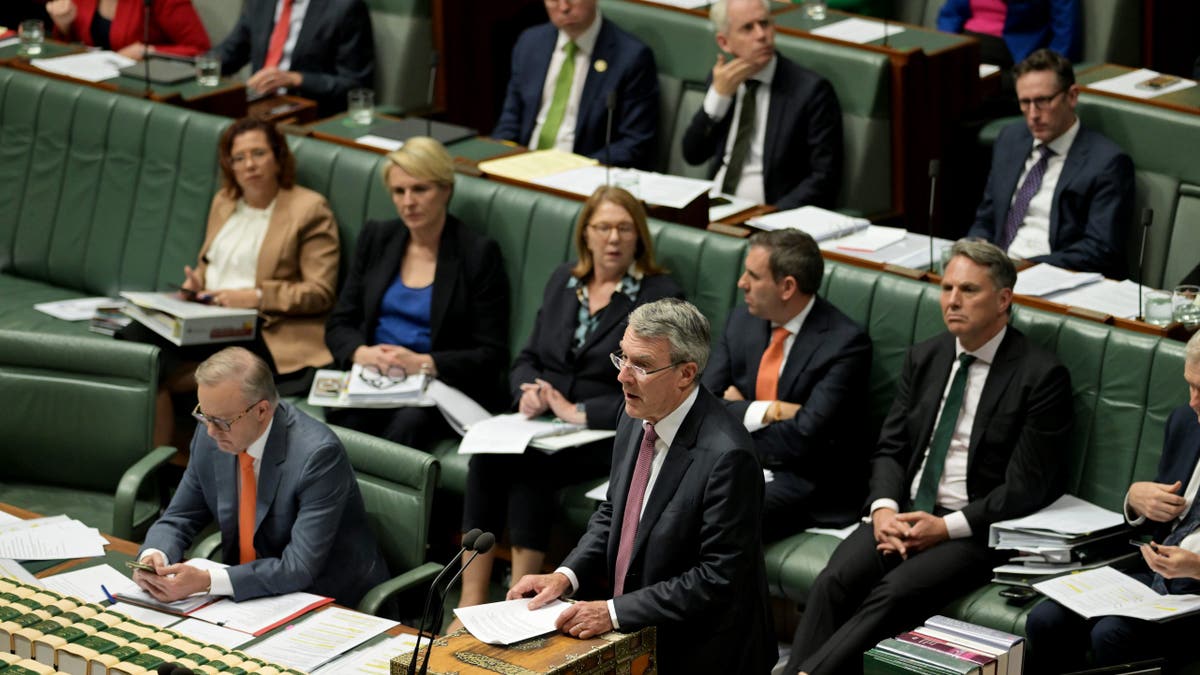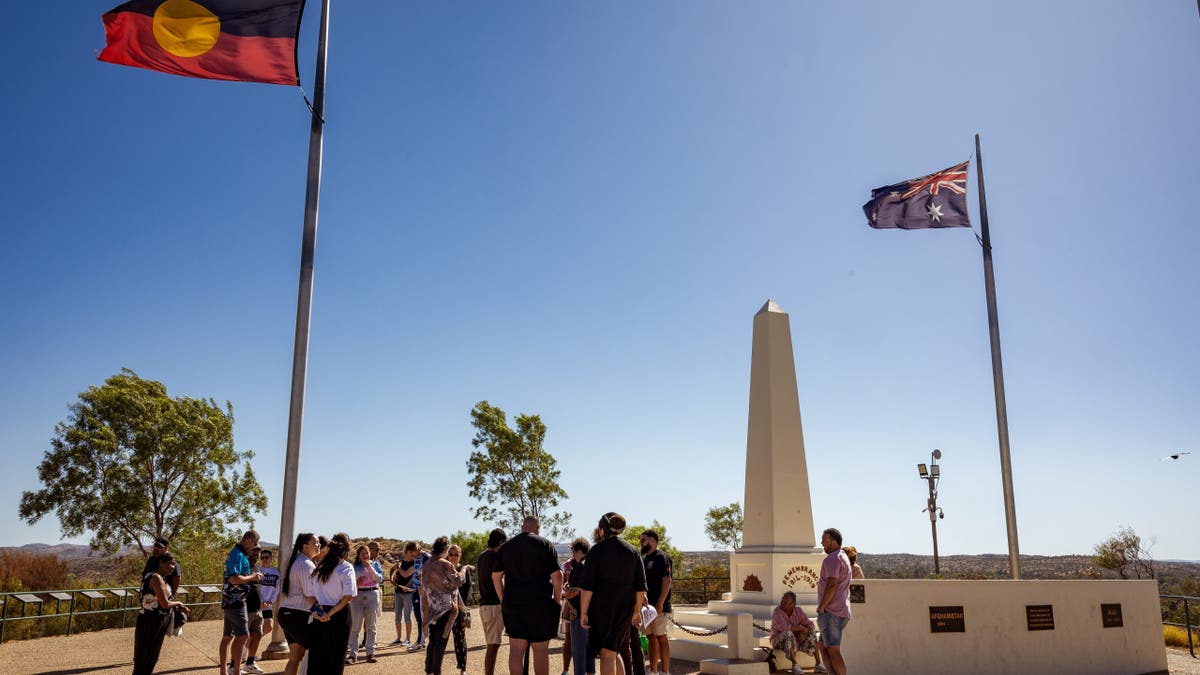Washington Post reporter asks White House what 'role' it has in stopping 'misinformation' from Trump-Musk interview
The Washington Post's Cleve Wootson Jr. asks White House Press Secretary Karine Jean-Pierre what "role" the Biden administration has in stopping "misinformation" from the Trump-Musk interview.
Australian officials have proposed new laws targeting online disinformation, with critics slamming the measures as potential over-policing and a potential crackdown on "difference of opinion."
"Misinformation legislation introduced into federal parliament today represents a chilling assault on every Australian’s right to free speech. The new Bill broadens provisions to censor speech, which even the government’s fatally flawed first draft did not include," John Storey, the Director of Law and Policy at the Institute of Public Affairs, told Sky News.
Storey called the proposed laws "the single biggest attack on freedom of speech in Australia’s peacetime history."
Australian Communications Minister Michelle Rowland introduced the plan on Thursday, telling parliament that the laws aimed to combat misinformation and disinformation. Rowland labeled such issues a "serious threat" to the "safety and well-being" of Australia.
The laws would penalize companies for enabling misinformation with fines of up to 5% of their global revenue for failing to prevent the spread of misinformation, requiring tech companies to set codes of conduct specifically to tackle misinformation through an approved regulator.

Australian Prime Minister Anthony Albanese (center) gives an address to the Leaders’ Plenary during the 2024 ASEAN-Australia Special Summit at the Melbourne Convention and Exhibition Centre in Melbourne, Australia, March 6, 2024. (Joel Carrett/Pool via Reuters/ File Photo)
The laws would also introduce a punishment of up to seven years in jail for doxxing someone – the term for when an individual either publicly reveals private information about another person online or uses that information for exploitation – and parents can sue for "serious invasions of privacy" related to their children, The Guardian reported.
The government scrapped a previous version of the laws after facing widespread condemnation, and the Free Speech Union of Australia argued that the new laws failed to address "key issues" raised from the first effort "despite the outpouring of public concern."
JUDGE HANDS TRANSGENDER WOMAN WIN AGAINST FEMALE-ONLY APP IN LANDMARK CASE
The new laws have drawn similar ire from across the media landscape, with Elon Musk calling the Australian government "fascists" in a terse tweet about the topic. Labor Assistant Treasurer Stephen Jones countered by calling Musk’s comment "crackpot stuff" and insisting that the issue was a matter of "sovereignty."
"Whether it’s the Australian government or any other government around the world, we assert our right to pass laws which will keep Australians safe – safe from scammers, safe from criminals," Jones said in response.

Attorney-General Mark Dreyfus during Question Time in the House of Representatives at Australian Parliament House on August 22, 2024, in Canberra, Australia. (Tracey Nearmy/Getty Images)
Storey, in a statement released last year when the government made clear its intention to press on with developing these penalties for alleged misinformation, called the effort "disingenuous," arguing that the government sought to "conflate the protection of Australians … with the federal government’s plan to empower bureaucrats in Canberra with the right to determine what is the official truth."
"The federal government is cravenly using heightened concerns about current tensions in parts of our community, and the fears of parents and others about harmful online content, as a trojan horse to push forward laws that will in practice impose political censorship," Storey said.
‘HISTORIC BREAKTHROUGH’: US DITCHES DEFENSE TRADE RESTRICTIONS WITH TOP ALLIES TO COUNTER CHINA
Officials have argued that the country faces a foreign threat through the influence peddled through social media platforms, and they have concerns over how it will impact the upcoming federal election, due to be held within the next year, according to The Economic Times.

The Aboriginal and Australian flag flies on top of ANZAC Hill in the center of Alice Springs while a crowd of people gather for a smoking ceremony with Traditional Owner Kumalie Kngwarraye. Indigenous Australians react to the outcome of the Indigenous Voice to parliament which failed to secure a majority vote on October 14, 2023. (Tamati Smith for the Washington Post)
However, the government did loosen its stance on a few measures, such as narrowing the scope of what will count as "verifiable … false, misleading or deceptive" information and "reasonably likely to cause harm," as well as excluding "reasonable dissemination of content for any academic, artistic, scientific or religious purpose."
CLICK HERE TO GET THE FOX NEWS APP
The issue came into sharp focus during the referendum on the Australian Indigenous Voice referendum, which would have altered the Australian Constitution to recognize Indigenous Australians in the document. The measure ultimately failed, but the noise around the vote included alleged spread of misinformation that posed a significant concern for officials.
One example included the claim that the body developing the referendum would be able to seize property or land, should it pass, or that people would need to pay rent to Indigenous people if the measure were to pass, The New York Times reported.










































